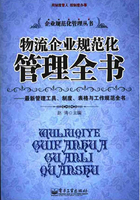Considering then the doctrine of moral necessity as sufficiently established, let us proceed to the consequences that are to be deduced from it. This view of things presents us with an idea of the universe, as of a body of events in systematical arrangement, nothing in the boundless progress of things interrupting this system, or breaking in upon the experienced succession of antecedents and consequents. In the life of every human being there is a chain of events, generated in the lapse of ages which preceded his birth, and going on in regular procession through the whole period of his existence, in consequence af which it was impossible for him to act in any instance otherwise than he has acted.
The contrary of this having been the conception of the mass of mankind in all ages, and the ideas of contingency and accident having perpetually obtruded themselves, the established language of morality has been universally tinctured with this error. It will therefore be of no trivial importance to enquire how much of this language is founded in the truth of things, and how much of what is expressed by it is purely imaginary. Accuracy of language is the indispensable prerequisite of sound knowledge; and, without attention to that subject, we can never ascertain the extent and importance of the consequences of necessity.
First then it appears that, in the emphatical and refined sense in which the word has sometimes been used, there is no such thing as action. Man is in no case, strictly speaking, the beginner of any event or series of events that takes place in the universe, but only the vehicle through which certain antecedents operate, which antecedents, if he were supposed not to exist, would cease to have that operation. Action however, in its more simple and obvious sense, is sufficiently real, and exists equally both in mind and in matter. When a ball upon a billiard-board is struck by the mace, and afterwards impinges upon a second ball, the ball which was first in motion is said to act upon the second, though the results are in the strictest conformity to the impression received, and the motion it communicates is precisely determined by the circumstances of the case. Exactly similar to this, upon the reasonings already delivered, are the actions of the human mind. Mind is a real principle, an indispensable link in the great chain of the universe; but not, as has sometimes been supposed, a principle of that paramount description as to supersede all necessities, and be itself subject to no laws and methods of operation.
Is this view of things incompatible with the existence of virtue?
If by virtue we understand the operation of an intelligent being in the exercise of an optional power, so that, under the same precise circumstances, it might or might not have taken place, undoubtedly it will annihilate it.
But the doctrine of necessity does not overturn the nature of things.
Happiness and misery, wisdom and error will still be distinct from each other, and there will still be a correspondence between them. Wherever there is that which may be the means of pleasure or pain to a sensitive being, there is ground for preference and desire, or on the contrary for neglect and aversion. Benevolence and wisdom will be objects worthy to be desired, selfishness and error worthy to be disliked. If therefore by virtue we mean that principle which asserts the preference of the former over the latter, its reality will remain undiminished by the doctrine of necessity.
Virtue, if we would reason accurately, should perhaps be considered by us, in the first instance, objectively, rather than as modifying any particular beings. Virtuous conduct is conduct proposing to itself a certain end; by its tendency to answer that end, its value and purity are to be tried. Its purpose is the production of happiness, and the aptitude or inaptitude of particular beings in this respect will decide their importance in the scale of existence. This aptitude is usually termed capacity or power. Now power, in the sense of the hypothesis of liberty, is altogether chimerical. But power, in the sense in which it is sometimes affirmed of inanimate substances, is equally true of those which are animate. A candlestick has the power or capacity of retaining a candle in a perpendicular direction.
A knife has a capacity of cutting. In the same manner a human being has a capacity of walking: though it may be no more true of him than of the inanimate substance that he has an option to exercise or not to exercise that capacity. Again, there are different degrees as well as different classes of capacity. One knife is better adapted for the purposes of cutting than another.
There are two considerations relative to any particular being that generate approbation, and this whether the being be possessed of consciousness or no. These considerations are capacity, and the application of capacity.
We approve of a sharp knife rather than a blunt one, because its capacity is greater. We approve of its being employed in carving food, rather than in maiming men or other animals, because that application of its capacity is preferable. But all approbation or preference is relative to utility or general good. A knife is as capable as a man of being employed in purposes of utility; and the one is no more free than the other as to its employment.
The mode in which a knife is made subservient to these purposes is by material impulse. The mode in which a man is made subservient is by inducement and persuasion. But both are equally the affair of necessity. The man differs from the knife, as the iron candlestick differs from the brass one; he has one more way of being acted upon. This additional way in man is motive;Chapter n the candlestick, is magnetism.















